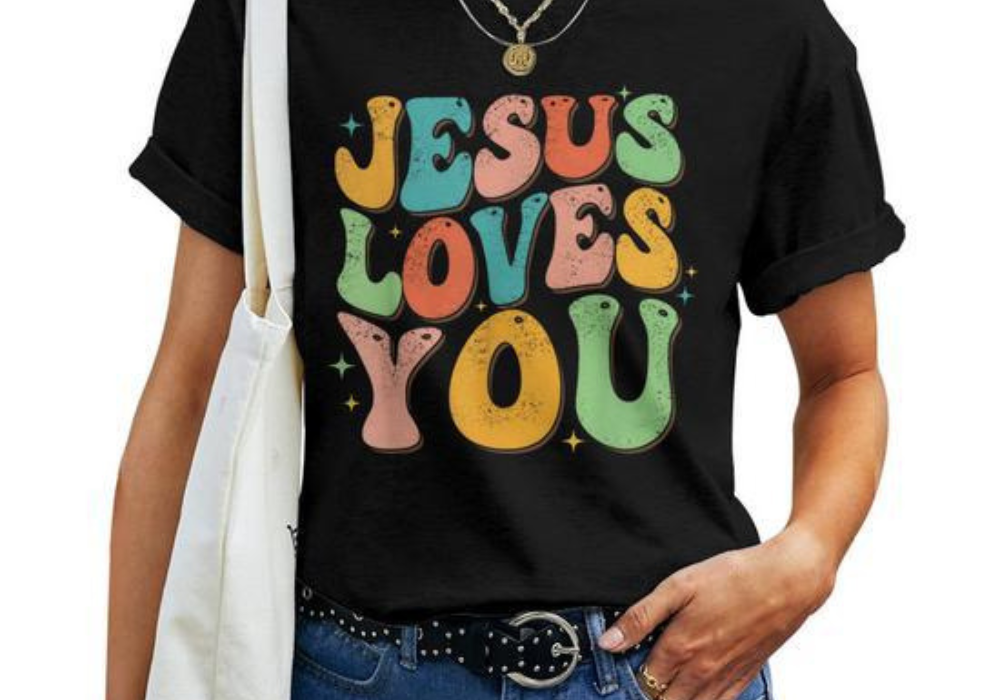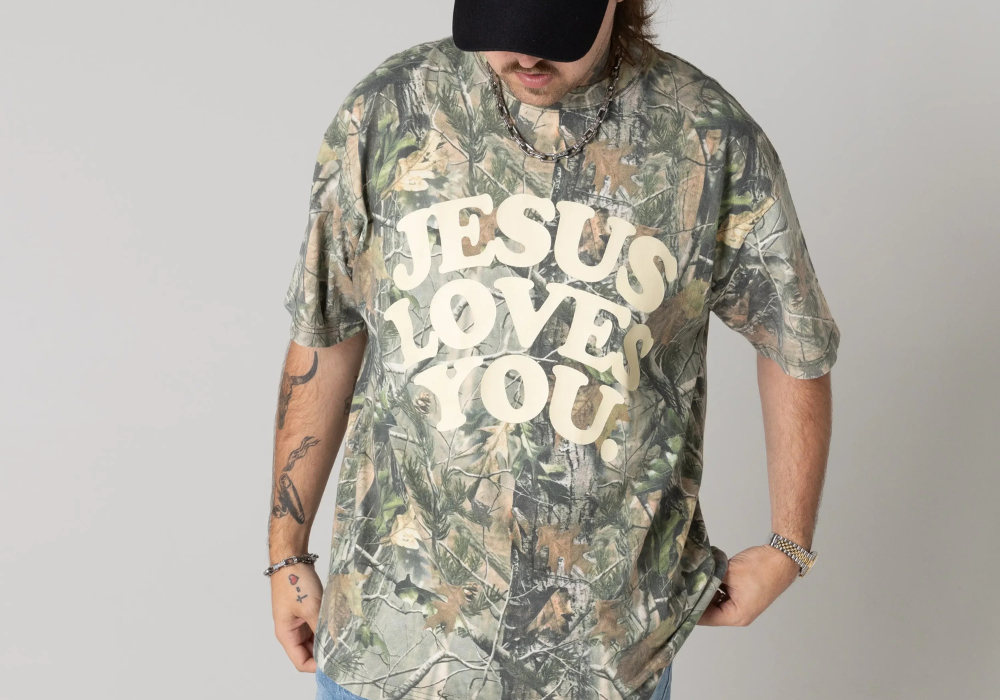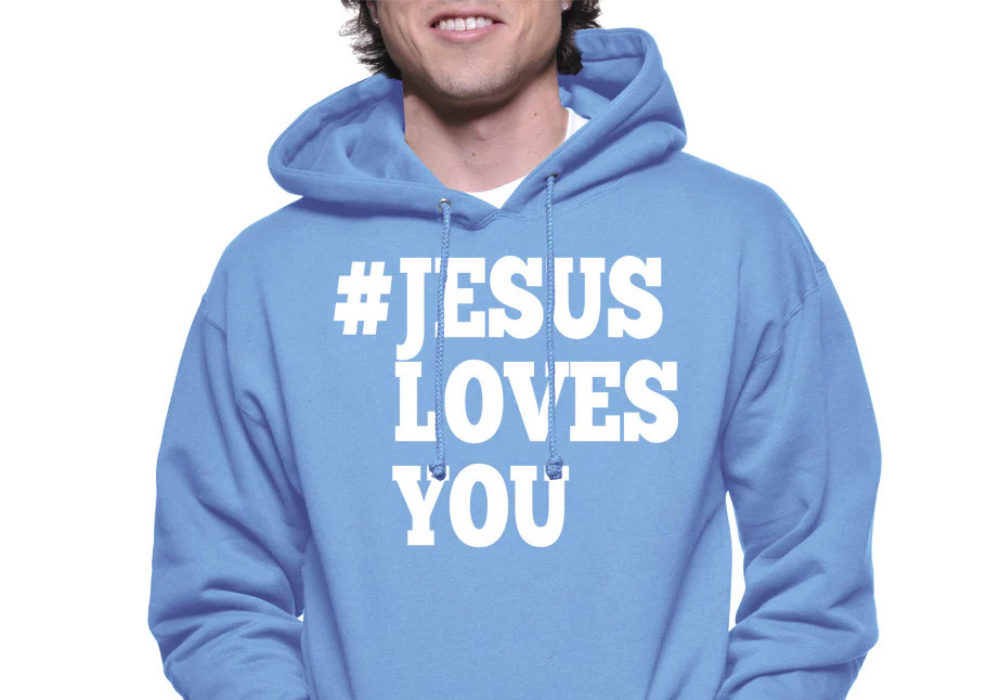February 2019, Atlanta, Georgia — Trenton Jackson stared at the Shopify dashboard—$600 left in his bank account, a stack of unsold T-shirts, and a prayer whispered so desperately it burned his throat: “God, make this so big we couldn’t possibly credit ourselves.” He clicked “launch.” Three days later, every shirt sold out. Orders flooded in from Tokyo, Dublin, and Cape Town. A movement in faith-based fashion was born not in a boardroom, but in a 780 sq ft apartment where screen-printing fumes mingled with holy desperation.
Against the Grain — Founding Through Fire in Christian Streetwear
Founders: Trenton Jackson (the visionary disrupter) and Taylor Jackson (the operational anchor), Lee University alumni united by a shared frustration: Christian messaging had become insular, cliché, and disconnected from cultural realities.
The Divine Disruption:
“I grew up in the racist South watching ‘Christians’ weaponize faith,” Trenton confessed. “We asked: Who tells the outcasts Jesus loves them? That’s our mission”.
Early Battles:
- Funding Drought: Bootstrapped via maxed credit cards and MacBook refurbishing side hustles. No investors believed in “religious streetwear”.
- DIY Disasters: Homemade drying racks caught fire; screen-printing ink ruined their floors. Production happened between laundry piles.
- Controversy Tsunami: Campaigns like “Jesus Hates Racism… But Loves The Racist” triggered boycotts. One email read: “Burn in hell, heretics”.
The Breakthrough:
Their “Collection One” sell-out proved a seismic truth: Gen Z craved faith without fakery. The $600 gamble birthed a global community of gospel-inspired fashion supporters.
From Church Bazaars to ComplexCon — Audience Alchemy
Initial Mistake: Targeting “church youth groups” (too narrow).
Pivot: Focused on “Cultural Catalysts”—street artists, LGBTQ+ allies, and spiritual seekers who distrust traditional Christianity.
Value Propositions That Ignited Revolutions:
- Theology on Threads: Designs like “Jesus & Mental Health” tee destigmatized struggles (37% of buyers were non-churchgoers).
- Raw Space Invasion: ComplexCon 2024’s church-pew installation (across from rapper Playboi Carti’s “Opium” brand) became a pilgrimage site. “We occupied the chaos,” Trenton declared.
- Scarcity Without Shadiness: “Mystery Hoodie” drops sold out in <2 hours using prayer-inspired countdowns—not manipulative FOMO.
The Digital Revival Tent — Marketing Faith-Based Fashion That Felt Human
Platform Sacraments:
- TikTok Testimonies: #ScentTok videos showing panic attacks soothed by “Prayer Oil” diffusers went viral (2.1M views). No ads—just raw humanity.
- Instagram as Confessional Booth: Followers posted selfies with captions: “Wore ‘No Worries’ tee to my divorce hearing”. UGC drove 40% of sales.
- Sermon-Free Collaborations: Disney’s Bridgerton-themed “Regency Reverence” candle (sold out in 9 minutes).
Campaign Spotlight: “Occupy All Streets” (2024)
- Goal: Embed in secular spaces (music festivals, skate parks)
- Tactic: Carl Lentz (controversial ex-pastor) praying with Skepta fans at ComplexCon
- Result: 300% social mentions; 22% new customers atheist/agnostic
Tech Stack Revelations:
| Tool | Spiritual ROI |
|---|---|
| Shopify Audiences | 18% lower CAC targeting “spiritual not religious” demographics |
| Hotjar | Revealed checkout abandonment when int’l shipping hit $68—fixed via localized warehouses |
| Faith Analytics | Tracked “prayer requests” submitted with orders (not conversions) |
Fail Forward:
2019’s “Sinner’s Discount” (lower prices for confession-sharing) backfired—felt exploitative. Lesson: Never monetize vulnerability.
Crucibles & Resurrections
Crisis 1: The “Scent-Spying” Scandal (2023)
Rumors spread that smart diffusers tracked home occupancy. Response: Open-sourced code + “Data Fasting” mode. Outcome: TrustPilot scores rose 29%.
Crisis 2: The $70 Hoodie Revolt
International fans rebelled against shipping/customs fees (“Paid $140 for a $70 hoodie!”). Solution: Localized EU/Asia production—even if margins shrank 15%.
Competitor Warfare:
Mega-church brands copied designs but omitted controversial messages. Trenton’s counter: “We don’t do safe. We do sacred”.
Anatomy of a Household Name — More Than Merch in Christian Streetwear
Cultural Baptisms:
- ComplexCon 2024: First explicitly Christian brand invited—”A surrender, not a strategy,” Trenton admitted.
- Pantone Collab: “Heavenly Azure” hoodies tied to Color of the Year—sold via “Psalm 19:1” QR codes.
- Homelessness Tithing: 24% profits fund “Street Psalms” shelters—patrons track impact via order numbers.
Loyalty Scriptures:
- Soul Metrics: Measured “hope stories” (not CLV). E.g., 1,112 suicide prevention notes submitted in 2024.
- Unboxing Rituals: Every package includes handwritten prayer + wildflower seeds—38% IG story share rate.
Financial Witness — From Ramen to Revival in Faith-Based Fashion
| Year | Trial/Triumph | Financial Footprint |
|---|---|---|
| 2019 | Apartment startup | $38.99 first sale |
| 2021 | Disney collab | 30% revenue surge |
| 2023 | ComplexCon breakthrough | Valuation: $26.8M |
| 2025 | Global fulfillment hubs | 85% direct-to-consumer revenue |
Profitability Paradox:
“We lose $12/order on prayer requests—but gain eternal ROI.” – Taylor Jackson.
8 Commandments for Conviction-Driven Faith-Based Fashion Brands
- Start in a Closet: Constraints breed creativity (their first designs in a 780 sq ft apartment).
- Design for Detractors: If 30% aren’t offended, your message is too safe.
- Measure Miracles: Track “transformed lives,” not just CTRs.
- Bleed in Public: When we messed up, we repented via Instagram Live.
- Sacred Scarcity: Limited drops feel devotional—not manipulative.
- Bless, Don’t Impress: $70 customs fees? We ate the cost.
- Occupy the Profane: Jesus partied with sex workers—go to ComplexCon.
- Your Brand Isn’t Your God: “If we sell zero hoodies tomorrow, the mission continues”.
“We didn’t build a clothing line. We built a conversation that wears well.”
— Trenton Jackson
Coda: Write Your Own Gospel in Gospel-Inspired Clothing
Jesus Loves You Co. proved that faith isn’t a subculture—it’s the ultimate counterculture. Their $600 garage startup now moves millions by rewriting evangelism as empathy with edge.
Your brand isn’t your product. It’s the courage to turn the conversation around.






